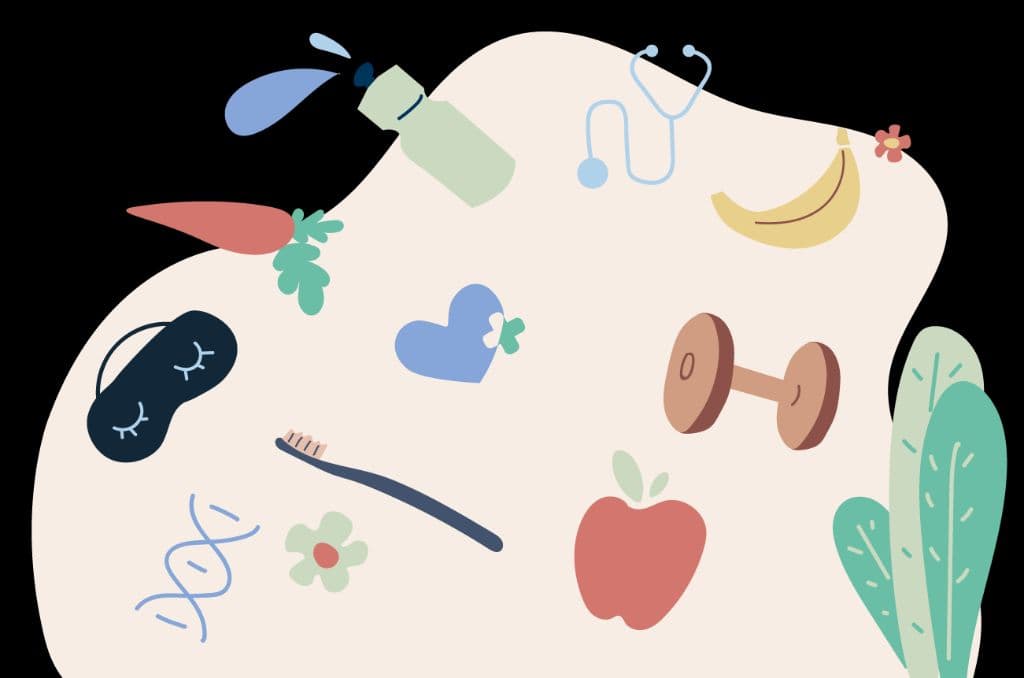Collagen is one of the most recent trending words in the health industry. It is a protein that gives structure to your body, including your bones, skin, tendons, and ligaments. It makes up 75% of the skin's support structure. It makes up about a third of all the protein in the human body more than some other type of protein in the body by mass.
There is a minimum of 16 types of collagen. It's found all through your body, giving structure and support. The principal types of collagen are type I, II, III, and IV.
Type I. This type represents 90% of your body's collagen and is made of thickly packed fibers. It gives structure to skin, bones, tendons, fibrous cartilage, connective tissue, and teeth.
Type II. This type is made of loosely packed fibers and found in elastic cartilage, which supports your joints.
Type III. It supports the structure of muscles, organs, and arteries.
Type IV. It assists with filtration and is found in the layers of your skin.
With growing age, your body creates less and lower quality collagen. One of the obvious signs of less collagen in your skin is when it becomes less firm and flexible. Cartilage also weakens with age.
Benefits of collagen
Consuming collagen may have many health benefits, from relieving joint pain to improving skin health. Let us look at some of the benefits of collagen:
- Can improve skin health : Collagen is a significant segment of your skin. It also helps in strengthening skin, increasing elasticity and hydration. As you age, your body produces less collagen, making your skin dry and indicating the formation of wrinkles. Besides this, taking collagen supplements may boost the production of different proteins that help structure your skin, including elastin and fibrillin.
- Could reduce the risk of bone disorders : Consuming collagen supplements may help reduce the risk of bone disorders like osteoporosis. They can help boost the Bone mineral density and lower levels of proteins in the blood that stimulate bone breakdown.
- Eases joint pain : Collagen maintains the strength of the cartilage (rubber-like tissue that protects your joints). Taking collagen supplements may reduce inflammation and stimulate collagen synthesis in the body. This may help advance pain relief among individuals with joint disorders like osteoarthritis.
- Promotes heart health : Taking collagen supplements may help reduce the risk factors related to heart conditions like atherosclerosis.
- Other health benefits : Collagen supplements can boost brain, heart, and gut health, just as help control weight and keep hair and nails healthy.
- Can improve muscle mass : Collagen makes nearly 1-10% of the muscle tissues which is necessary for the strength and proper functioning of the muscles. Studies have shown that collagen promotes synthesis of muscle protein like creatine.
- Boosts hair growt : Collagen is rich in amino acids that your body needs to build proteins like keratin which makes up hair. Since collagen protects the skin-layer, containing hair roots, it may help prevent age-related hair loss and thinning.

What are the sources of collagen?
The body naturally makes its collagen by breaking down dietary protein into amino acids. The amino acids are responsible for producing different types of protein in the body, including collagen. A balanced diet helps in building the desired structure for collagen production.
Nutrients that boost collagen production
All collagen is initially in the form of procollagen. Your body makes procollagen with two amino acids — glycine and proline. You might have the option to help your body produce collagen by ensuring you consume a lot of the nutrients:
- Vitamin C - Natural sources of vitamin C are fruits like strawberries, kiwi, and vegetables like bell peppers, etc.
- Glycine - Enormous amounts are found in pork skin, chicken skin, and gelatin, yet glycine is additionally found in different protein-containing food sources.
- Proline - Egg whites, wheat germ, cabbage, dairy items, asparagus, and mushrooms are rich in proline.
- Copper - Huge amounts are found in lentils, meats, cocoa powder, nuts, and sesame seeds.
Collagen Supplements
Collagen can be made into a supplement through the preparation of animal bone, skin, joints, and organs. These can emerge out of any animal including cows, chickens, fish, etc. Collagen also is extricated from the membrane of eggshells. Here are the six most basic forms of collagen supplements available today:
- Powder: Collagen per serving: 1 scoop will give ~7 grams of collagen protein
- Pills/Capsules: Collagen per serving: 3 collagen pills/capsules give around 2g of collagen protein.
- Bars: Collagen per serving: A collagen protein bar will ordinarily give 12g of collagen protein.
- Drinks: Collagen per serving: A collagen 12 oz drink will ordinarily give 10g of collagen protein.
- Shots: Collagen per serving: A 2 oz collagen shot will ordinarily give 7g of collagen protein.
- Gummies
Collagen Peptides
Collagen Peptides, also known as Hydrolyzed Collagen, are short chains of amino acids obtained from collagen. This implies that the protein is bio-available and prepared to be effectively absorbed. Moreover, your body needs great protein that contains the amino acids expected to make new proteins. Meat, poultry, fish, tofu, dairy, vegetables, etc, are rich in amino acids.
Key Considerations while choosing the right collagen supplement:
Ingredients: Pick multi collagen that comes from every one of the four food sources: Beef, Chicken, Fish, and Eggs, since it'll give each of the five types of Collagen I, II, III, V, and X. Also, be sure the brand is about:
- Grass-fed Beef
- Produced in a GMP (Good Manufacturing Practice) facility
- Non-GMO
- Gluten-free
- Free of Artificial Sweeteners
Third-party certification: The Government is restricted in resources for quality control. Due to this quality control shortage, supplement companies pull off utilizing heavy metals, solvents, toxic ingredients, and banned substances. So, any time you're choosing a dietary supplement, check if a credible group like the NSF, UL, FSSAI, or USP has tested it for safety before.
Price: Try for ~INR 2500 to 3000 for around 70 servings per container. That is a great value point per serving. Collagen containers (and servings per container) come taking all things together in different sizes — read the label and make your decision.
Selection: Having an unflavored collagen supplement should give you choices with seasoned (without compromising on quality ingredients) which sets you up for progress with the suggested servings.
Quick tip: Avoid artificial flavors, sugar-free sweeteners, and unusual ingredients that look new.
Safety and Side effects of collagen therapy
Until this point in time, there is restricted solid information available on the safety and efficacy of collagen supplements. The expected side effects of gelatin supplements may include an unpleasant aftertaste and sensations of heaviness and heartburn.
Final Words
It is a fact that collagen promotes skin health and vitality. Notwithstanding, it may also help boost health, like bone, joint, and heart health.One can assume collagen supplements they buy from various online and local stores, and they can easily find the product which suits their particular dietary requirements.
Disclaimer: This information is educational and should not be construed as medical advice. Please consult your doctor before making any dietary changes or adding supplements.
Proactive For Her is a digital clinic for women, offering accessible, personalised, and confidential healthcare solutions. We offer out-patient care, diagnostic services and programs for various health concerns of Indian women, across their lifetime - from puberty to pregnancy to menopause.

